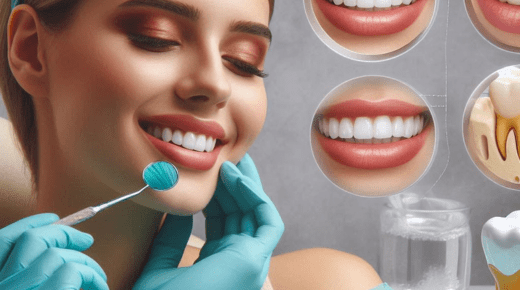A frequent yet annoying dental health problem that many individuals encounter at some time in their lives is canker sores explains a San Jose dentist. These tiny, excruciating ulcers can cause discomfort when speaking, eating, and drinking. Canker sores may seem like a small annoyance, but if they happen regularly, they may have a major negative influence on your quality of life. Maintaining excellent dental health in San Jose requires knowledge of canker sores and knowledge on how to treat them.
What Are Canker Sores?
Canker sores (aphthous ulcers) are small shallow lesions that form on the soft tissues in your mouth or at the base of your gums. Cold sores are caused by the herpes simplex virus, and they spread easily from person to person; canker sores are not contagious at all. They are usually round or oval sores with a white or yellowish center and red border. Canker sores generally go away on their own within one to two weeks, but can be quite painful in that time.
Causes of Canker Sores
Although the cause of canker so. none is unknown, certain factors may contribute to their development. Some common causes include:
1. Mouth Injury: Canker sores can develop from minor lesions to the interior of the mouth caused by dental procedures, accidental bites, or excessive brushing.
2. Food Sensitivities: Some people are susceptible to developing canker sores from eating certain foods, especially those that are acidic or spicy like citrus fruits, tomatoes, coffee, and chocolate.
3. Nutritional Deficiencies: A deficiency in essential vitamins and minerals including vitamin B12, folate, zinc, or iron can play a role in causing canker sores to appear.
4. Emotional stress: This may help explain the often reported trigger of a canker sore starting after trauma.
5. Medical Conditions: People who have celiac disease, Crohn’s disease, and some autoimmune disorders may suffer more often from mouth ulcers.
6. Allergic Reactions: Allergies to particular foods or ingredients present in oral care products can also cause canker sores.
7. Genetic: You may not directly inherit that canker sore gene fairly or unfavorably.
Treatments for Canker Sores
Canker sores often heal naturally, but many treatments are available to manage pain and speed healing. Common treatments available include the following:
1. Over-Counter Products: Mouth gels, creams and rinses made for canker sores may help alleviate pain and aid in healing.
2. Home Remedies: Home remedies may also be of some benefit, and these include rinsing your mouth with a saltwater solution to rinse away the bacteria as well as reduce inflammation which can speed up healing.
3. Avoid Foods That Trigger Them: If there are specific foods that cause your canker sores, steer clear. Eating a soft, bland diet while the sores heal will also reduce pain.
4. Nutrition: Dental professionals most likely will recommend consuming supplements that help prevent the frequency of canker sores and remember what foods to avoid.
5. Prescription Medicines: If your canker sores are particularly severe or long-lasting, you may be a candidate for prescription-strength treatments like corticosteroid lozenges, or even mouth rinses containing dexamethasone.
Repeated Canker sores can be very painful though is a common oral health issue. If you experience canker sores, this knowledge will help you get the proper treatment and manage them more effectively without disrupting your daily life. In San Jose, life can get a little hectic and your oral health is something that you should take time for. If you have a regular repetition of canker sores or chronic outbreaks, seek help from a San Jose dentist for alleviation and advice on what to do next.

